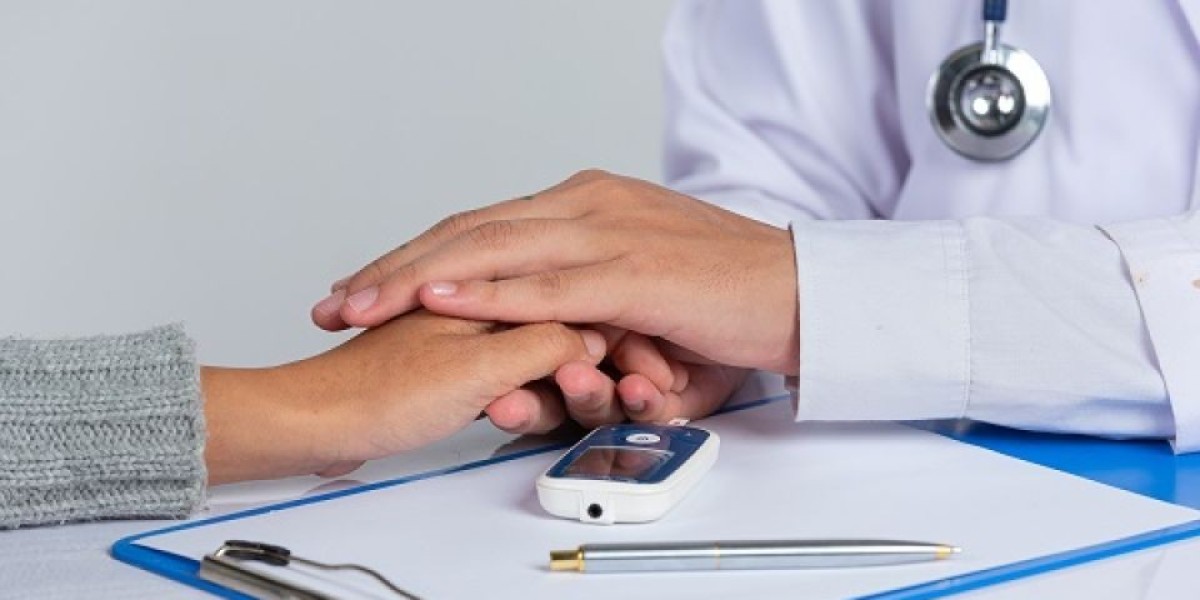Whether you've just been diagnosed with diabetes or your condition has become difficult to manage, scheduling an appointment with a diabetes doctor is a vital step toward taking control of your health. But if it’s your first visit, you might feel anxious or unsure about what’s going to happen. What should you bring? What will they ask? Will you leave with a clear plan?
Why See a Diabetes Doctor in the First Place?
A diabetes doctor is a healthcare provider with expertise in diagnosing and managing various forms of diabetes, including:
Type 1 diabetes
Type 2 diabetes
Prediabetes
Gestational diabetes
They help patients manage blood sugar levels, reduce the risk of complications, and build long-term care plans that include medication, diet, exercise, and lifestyle support. If your blood sugar is unstable, you're experiencing symptoms, or your current plan isn't working, a diabetes doctor can help you find effective, personalized solutions.
Before Your Appointment: How to Prepare
1. Gather Your Medical History
Bring documentation or a list of:
Past and current health conditions
Medications and supplements
Family history of diabetes or metabolic disorders
Previous test results (if available)
The more information your diabetes doctor has, the better they can understand your health landscape.
2. Log Your Blood Sugar Readings
If you’ve already been monitoring your blood glucose, bring your logs or device with you. The doctor will review these numbers to identify patterns and trends. If you haven’t started monitoring yet, don’t worry—they will guide you on how to begin.
3. Prepare Questions and Concerns
Write down any symptoms, concerns, or questions in advance, such as:
“Why am I always tired after eating?”
“Should I be worried about tingling in my feet?”
“Is it too early to start medication?”
“Can I reverse this with diet?”
Your diabetes doctor welcomes questions—your curiosity is key to successful management.
During the Visit: What Happens in the Office
Your first consultation may take longer than future visits, typically 45 to 60 minutes, because it’s focused on understanding your full health picture.
1. Detailed Health History Review
The doctor will ask about:
When you were diagnosed and by whom
Current symptoms (fatigue, weight gain/loss, frequent urination, blurred vision)
Past blood sugar levels or A1C results
Diet, physical activity, stress, and sleep patterns
Smoking, alcohol, and family history
This information forms the foundation of your care plan.
2. Physical Examination
Expect a basic physical exam, including:
Blood pressure and weight check
Heart and lung auscultation
Foot exam to check for nerve sensitivity or ulcers
Eye check (in-office or referral for a detailed retinal exam)
The diabetes doctor uses this exam to detect early signs of diabetic complications.
3. Review of Lab Work and Diagnostic Tests
If you haven't already done lab tests, your doctor may order:
A1C test (average blood glucose over 2–3 months)
Fasting blood glucose
Kidney function tests (creatinine, eGFR, microalbumin)
Lipid profile (cholesterol, HDL, LDL, triglycerides)
Liver function tests
Thyroid function (in some cases)
Urinalysis
These tests offer a comprehensive view of your metabolic health and help guide treatment decisions.
4. Discussion About Lifestyle and Habits
You’ll talk about:
What you typically eat and drink
How active you are during the day
Sleep duration and quality
Stress levels and coping mechanisms
This conversation isn’t to judge—it helps your diabetes doctor suggest realistic changes that match your life.
5. Blood Sugar Monitoring Plan
If you’re not already monitoring blood glucose, your doctor will teach you:
How and when to test
Target ranges for fasting and post-meal levels
How to log results or use a digital app
They may recommend using a glucometer or, in some cases, a continuous glucose monitor (CGM).
What to Expect From the Doctor's Recommendations
1. A Customized Treatment Plan
Based on your results, symptoms, and goals, your diabetes doctor will create a personalized treatment strategy. This may include:
Dietary changes (e.g., carb counting, portion control)
Physical activity guidelines
Stress-reduction strategies
Weight management goals
Smoking cessation (if applicable)
The treatment plan is a blueprint—not a rigid rulebook. It evolves with your progress.
2. Medication (If Needed)
If lifestyle changes alone aren’t enough, your doctor may prescribe medications. These can include:
Oral drugs like metformin, SGLT2 inhibitors, or DPP-4 inhibitors
Injectable medications (e.g., GLP-1 receptor agonists)
Insulin therapy, especially in Type 1 diabetes or advanced Type 2
The diabetes doctor will explain:
How each medication works
When and how to take it
Possible side effects
How to adjust doses if needed
You’ll also discuss how medications interact with food, activity, and alcohol.
3. Referrals and Support Resources
To support your care, your doctor may refer you to:
A dietitian or nutritionist
A certified diabetes educator (CDE)
An ophthalmologist for eye screening
A podiatrist for foot care
A counselor for stress or mental health
Managing diabetes requires a team approach, and your diabetes doctor often acts as the coordinator.
After the Appointment: What Comes Next
1. Follow-Up Schedule
You’ll typically schedule your next visit in 1–3 months. The frequency depends on:
How stable your blood sugar is
Whether medications were started or changed
Presence of complications
Regular visits allow for tracking progress and fine-tuning your care.
2. Monitoring Progress at Home
You’ll be expected to:
Track your blood sugar daily or as advised
Log symptoms or side effects
Stay consistent with lifestyle changes
Note how food, stress, or sleep affect your readings
Many patients use apps or journals to stay organized between visits.
3. Communication Between Visits
Ask your diabetes doctor how to reach them if you:
Experience side effects
Notice persistent blood sugar spikes or drops
Are unsure how to adjust your routine when sick or traveling
Some practices offer messaging portals or nurse lines for quick support.
Tips to Make Your First Visit More Effective
Arrive early and bring all required documents
Bring someone with you for support and help taking notes
Be honest about your lifestyle—accurate info = better care
Don’t rush—take your time to ask questions
Leave with a clear plan, including next steps and follow-up tests
This is your chance to start your diabetes journey with clarity and confidence.
Frequently Asked Questions (FAQs)
Q1. Do I need to bring anything to my first appointment?
Yes. Bring your ID, insurance card, list of medications, blood sugar logs (if any), and any past test results. Also, write down questions you want to ask.
Q2. Will I be prescribed insulin on my first visit?
Not always. Insulin is usually prescribed only if your blood sugar is very high or if you have Type 1 diabetes. Your diabetes doctor will assess your case before recommending insulin.
Q3. What should I wear to the appointment?
Wear comfortable clothes and shoes that can be removed easily. Your doctor may examine your feet or take measurements.
Q4. How long will the first visit take?
Expect 45 minutes to an hour, especially if it's your first diabetes evaluation. Follow-up visits are typically shorter.
Q5. What if I forget something during the visit?
That’s okay. You can call the office afterward or message through a patient portal. It’s common to feel overwhelmed at first, so don’t hesitate to ask follow-up questions.
Conclusion
Your first visit to a diabetes doctor sets the tone for your long-term diabetes management. It’s more than just a checkup—it’s the beginning of a proactive, personalized approach to better health. You’ll leave with a deeper understanding of your condition, a custom care plan, and the confidence to take meaningful action.
With the right preparation and a willingness to engage in your care, this visit can be the foundation for a healthier, more empowered future.






